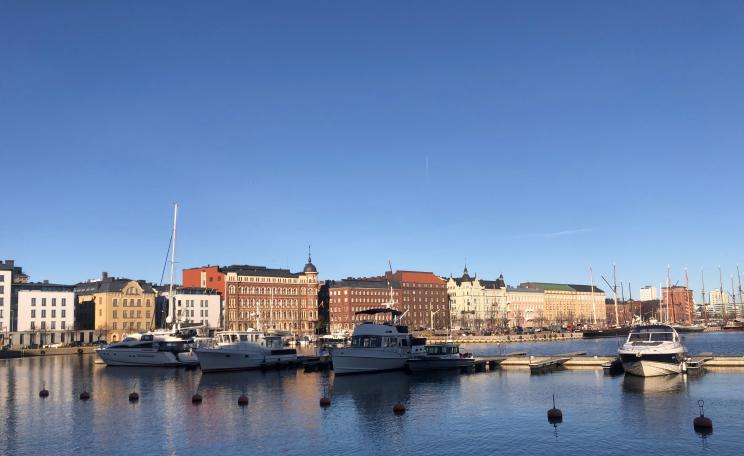You can't change everything but you can do something.
6 top tips to combat climate anxiety:
1.Channel your unease into positive action
Worrying about your future is a good sign. It means you have the potential to take action.
Footprint
Though you cannot control climate change, you can control what you personally do about it.
Start with small actions everyday. Apply the principles of “reduce, recycle and reuse” to as much as you can.
2 - Monitor your carbon footprint
Daily activities including electricity usage, vehicle usage and waste disposal generate greenhouse gases such as carbon dioxide and methane which make up your carbon footprint.
More greenhouse gas emissions mean a hotter and less hospitable planet.
Fads
While you cannot lower your carbon footprint and solve the climate crisis overnight, you can reassess your lifestyle and actively make changes where you see room to.
You could reduce your wastage of food by only buying as much as you need or cut down on meat consumption or take short showers instead of baths - the list can go on. Use an app or carbon footprint calculator to keep you accountable.
3 - Don’t give in to sustainability fads
Instagram and TikTok are constantly saturated with movements about shifting to supposedly “sustainable” materials like metal tiffins, glass kitchenware, natural fabrics, etc.
Though the intentions behind these trends may appear to be good natured, they are quite possibly cleverly disguised advertisements that could be heavily contributing to financing the latest products.
Doomscrolling
The reality is that there is nothing more sustainable than what you already own. Use items you already have until they stop serving their purpose and only then shift to something more sustainable and longer lasting.
4 - Speak to a professional
It does not help anyone’s anxiety that social media has the tendency to amplify terrifying headlines.
It is quite normal to find oneself doomscrolling when a natural disaster is underway, but it is not normal for a fear of the future to grip your present.
Consider switching off from social media during times of environmental crises and seek assistance from a professional if climate anxiety is getting in the way of your daily life.
Flying
5 - Avoid flying
Flying contributes to an inequality in climate change, in that, a majority of people do not take planes but are still collectively affected by the habits of a frequently flying minority.
The next time you want to jet set on a vacation, consider travelling locally and exploring the natural beauty in your surroundings.
Wherever you can, be mindful to avoid flights, and try other modes of transport instead.
If you must travel internationally and it is possible to do so by train or road, by all means, opt for it because it will be much less polluting than a flight.
You can't change everything but you can do something.
Awareness
6 - Create awareness
Educate those around you about climate change, especially children.
Explain why we need to take action and why it needs to happen now so that sustainability becomes a way of life.
Regrowing kitchen scraps, for example, could teach young ones to become self-sufficient, get creative with what they already have in the garden and only buy an ingredient when they really need it.
Apart from this, make it a habit for kids to carry their own water bottle when they go out and turn off lights and appliances when they are not in use.
Realistic
Outforia spoke to Environmental Psychologist and Wellbeing Consultant, Lee Chambers (MSc, MBPsS), who has provided 6 realistic measures to relieve the pressures and negative thoughts surrounding climate anxiety:
1 - Regulate your climate news consumption: As awareness increases, so does the sheer volume of climate news stories.
A passion for making a difference usually involves following others who do so, and it's important to find the balance between being informed and being overwhelmed.
Unplugging from this for a few days is a great way to relieve the pressure and overstimulation, and be more mindful of what you consume when you return.
2 - Keep focused on what you can control: Planetary health is a complex and significant issue, and is too much for a single business or government to tackle, never mind an individual.
Positives
But focusing on what you can control, from small personal behaviours, to bigger community projects, helps you to see the change that you are making, and can help to ease the pressure on yourself, knowing you can't change everything but you can do something.
3 - Remembering you're not alone: It can feel this way at times, but there are more humans than you are aware of feeling the same way and working towards the same objectives.
Just knowing that they are out there fosters hope and encouragement, and finding ways to connect with them provides a support network based on shared values.
4 - Find the positives: As climate awareness has become increasingly mainstream, the negative news and stats are everywhere, draining and concerning in equal measure.
While it is important to be informed, ensure you are actively following the positive news and climate leaders making an impact.
Caring
The inspiration and passion that can be seen is helpful, makes us feel supported and less isolated, and the positive news can even improve our mood.
5 - Managing your own care: When creating space for yourself outside of your climate pursuits, ensure you are actively caring for yourself.
Our emotional balance is more stable when we sleep well, eat optimally and move our body.
In addition, finding ways to lessen our stimulation and creatively express ourselves provides a calming, mindful output that provides stability and a sense of calm confidence.
6 - Don't suppress your feelings: Climate anxiety is not something that should be suppressed; it's anxiety working as intended.
Changes
The ability to express and articulate your feelings is important, and whether it's through writing or talking, having a way to not through it alone is vital.
And if it does become something that starts to impact other areas of your life, then professional support is available.
Carl Borg, Founder and Editor-in-Chief of Outforia has commented, “As much as we would love to, we cannot take drastic measures on an individual level and fix the climate change crisis overnight.
"What we can do is to incorporate small changes in our daily habits because this is actually the way to make a large impact over time.
"No matter where you live, the chances are you aren't too far from a ‘nature spot’ you love - whether this be a local park or a national landmark.
Saddening
"To think that this could be taken away from you in your lifetime is truly saddening.
"However, the IPCC report has highlighted that we still have hope to achieve net zero emissions, so we really shouldn’t waste our time despairing but hold ourselves accountable every single day and do what we can because small steps add up over time.”
This Author
Ruby Harbour is the editorial assistant at The Ecologist. This article is based on a press release from Outforia.







